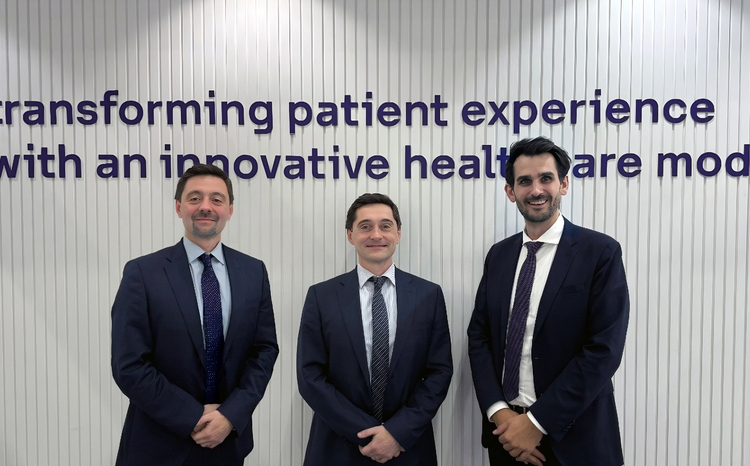‘Diagnostic cloud’ for NW London
- 16 June 2015

Healthcare providers in North West London have created a single diagnostic record for their patients using Sunquest ICE.
A clinical commissioning group collaborative representing 252 practices has worked with five local acute trusts to push their use of Sunquest ICE for order communications in pathology as high as 90%.
They are also working towards implementing the system across the patch for radiology.
Dr Farid Fouladinejad, IT Strategy Lead for Central London, West London, Hammersmith and Fulham, Hounslow and Ealing CCG Collaborative, said the group began the 'diagnostic cloud' project, to use Sunquest across all GP practices and acute trusts, nearly three years ago in Hounslow.
“The key driver has been around achieving a single diagnostic record for a patient across multiple care settings,” he said.
“The majority of our practices and activity was on Sunquest so we decided to standardise on Sunquest.”
The project started in the remaining four CCG areas 10 months ago, where use of Sunquest for order communications has risen from as low as 5% to as high as 80%. Hounslow CCG has achieved 90% uptake.
Fouladinejad said the opportunity to see diagnostic results from other sources was a driver for adoption by GPs.
The collaborative also put in place Commissioning for Quality and Innovation targets for the five local acute trusts in the area to improve their use of Sunquest.
Chelsea and Westminster Hospital NHS Foundation Trust recently became the last of the acute trusts to buy its own instance of Sunquest, after previously using Imperial College Healthcare NHS Trust for its pathology services.
GPs and the trusts use Sunquest ICE to request tests and the OpenNet module to view previous results.
London North West Healthcare NHS Trust and Imperial have both made pathology results visible to all staff, including in outpatient clinics and A&Es, allowing clinicians to view a patient’s full diagnostic record.
Fouladinejad said anecdotal reports are that clinicians are ordering fewer tests as they can see on the system that they have been done recently. There has been a reduction in activity around pathology in some areas, but it is difficult to attribute that directly to the digitisation project, he explained.
Most hospital staff have access via single sign-on in their electronic patient record and GPs get access via a button embedded in their clinical system.
Patient consent to view the Sunquest record is sought at the point of care, as outlined in an overarching memorandum of understanding that all providers have signed.
Fouladinejad said the plan is to expand access to the three or four community trusts in the area. Also, to link to providers in Surrey which are also all using the system.
The collaborative is also moving towards bar coding all samples so there is no opportunity for transcription errors.




